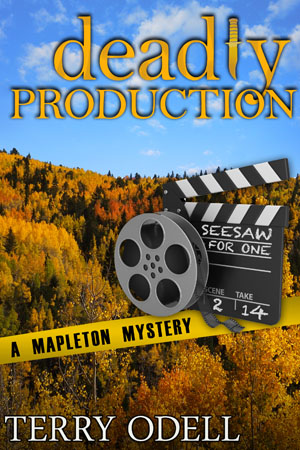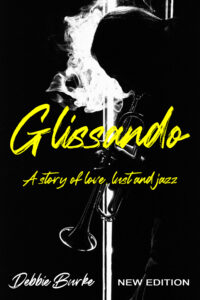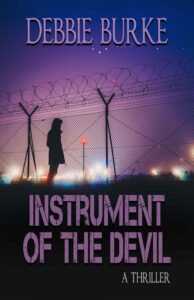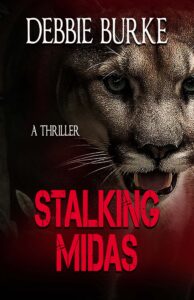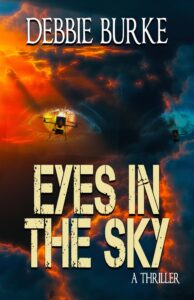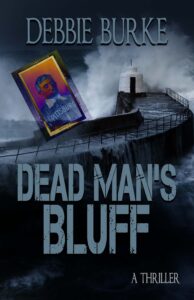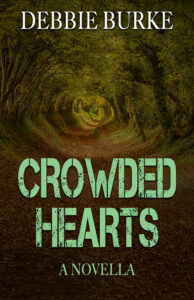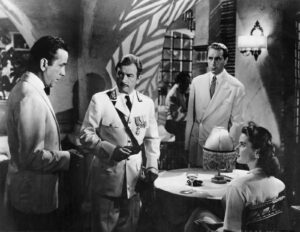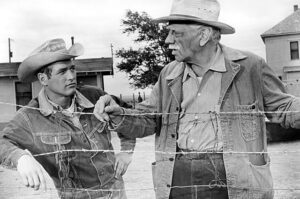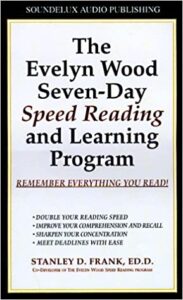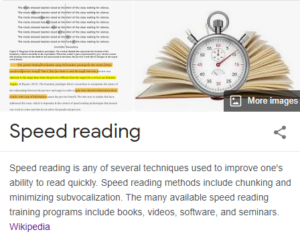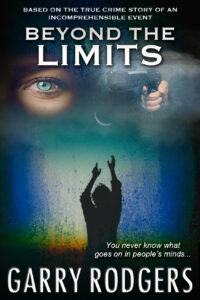By John Gilstrap
This morning, we take a look at a few hundred words that were submitted by Valiant Author, looking for an honest critique. I think we all know the drill by now. First, I’ll present the submission as I received it, and then it’ll be my turn on the back end:
Chapter 1
Beginnings
There was a knock at the door. “Major Edwards? It’s 0600; you requested a wake-up call, sir.”
Elijah turned the lamp on beside him and folded back the covers of his bed. The stark contrast between the warmth of the sheets and the chill of the room caused him to shiver. He sighed heavily as he placed his feet in the slippers beside the bed. He drew a short breath as they touched his skin, feeling more of ice than leather, before slowly walking to the door. Opening it, there stood a corporal with a clipboard.
“Thank you, Corporal, I’m up now,” said Edwards.
The Corporal nodded, “Yes Sir, do you need anything else Major?”
“No, that will be all.” Edwards replied closing the door.
The day’s ritual had begun.
He could hear the corporal move down the hallway and knock on the next door. Edwards rubbed his face, trying to wipe the fog of sleep from his mind, the stubble of his beard scratching his palms as he did. He turned from the door and paused to look around his “home”. A bed, with a washstand next to it, occupied most of the room. On the far wall, a wingback chair and ottoman sat before a fireplace. The walls, covered by large red roses on blue-tinted wallpaper, meant to be cheerful and welcoming.
The wood floor reflected his mood of late, worn, bare, and darkened by the passage of time. An Orderly cleaned it daily, yet it always smelled the same. A thick musty odor hung in the air, a reminder, of the many lives that passed through before him.
Edwards glanced at calendar on the wall, his only reminder that the world still moved along, read Friday, March 3rd, 1944.
It’s been over two years since I arrived in 1942, just one of thousands of Americans. Each of us, full of piss and vinegar, ready to kick the Nazis clean back to Germany. It seems like a lifetime ago. The swift victory we all believed in never came and one day just became the next in this interminable war.
=
It’s Gilstrap again.
A common trait among first chapters is what I call throat clearing, akin to the moment in public speaking when you approach the microphone and deliver an ahem as your first message to the audience. It centers you as a speaker. It makes the vocal cords vibrate to assure you that they are in place and ready to go, but the noise itself does little to advance the message people have gathered to hear.
In fiction, throat clearing is often disguised as setting or, heaven forfend, a prologue. It happens to all of us in early drafts, and I wager these passages rarely survive the final edit. All of that is fine. It’s part of the process. And it’s the bulk of what we find in this submission. It’s less story than it is pre-story.
I can’t begin to calculate the number of times various writers in this space have espoused the importance of beginning at a high point in a story. As one who writes a fair amount of violence into my books, I feel confident in proclaiming that the process of awakening from a sound sleep is rarely the high point in a book set in the midst of war. Even if what follows is not a series of shoot-’em-up action scenes, the fact of the war–and the sense of melancholy that flows from it–is the central theme of this opening. I would feel much more empathy for Major Edwards’s situation if he were blowing bloody snot out of his nose in a trench than having been rousted out of the rack by his orderly.
Alas, I feel that Valiant Author’s actual story begins on the other side of the page turn.
That said, let’s take a look at the sample itself, ignoring the strategic location within the story and concentrating instead on the craftsmanship itself. My comments are in bold face.
Beginnings (Okay, this is purely my own prejudice, and I confess that I might be completely off-base, but I dislike named chapters. They seem trite and old-fashioned to me.)
There was a knock at the door. (This form of sentence construction–“there was . . .” is toxic to narrative. It’s so horribly passive. It means nothing. Room service knocks on doors, and so do SWAT teams when they serve a warrant, but each represents an entirely different variety of contact with the door.) “Major Edwards? It’s 0600; you requested a wake-up call, sir.” (A wake-up call? Is this in fact a hotel? And if so, why is a corporal doing the wakeup duty? Under the circumstances, not knowing what corner of the war Major Edwards occupies, 0600 feels a lot like sleeping in. While we’re here, another pet peeve of mine is the use of numerals in dialogue. I always spell things out–oh six hundred. Also a pet peeve: semicolons have no place in fiction. [Cue the arguments from English purists.])
Elijah (Because we’re not yet acclimated to these surroundings or these characters, we don’t know who Elijah is. I would write this as, Major Elijah Edwards . . .) turned the lamp on beside him and folded back the covers of his bed. (This seems at once precious and vague. Did he yank the chain on the lamp? Spin a knob? Was the knob knurled? Yellow light? Bright enough to hurt his eyes? And as for folding down the covers, is that really the image you’re after? That seems so very fastidious.) The stark contrast between the warmth of the sheets and the chill of the room caused him to shiver. (He shivered in the cold. We’ll understand why.) He sighed heavily as he placed his feet in the slippers beside the bed. (Generally speaking, sighs are a mistake. Heavy sighs are always a mistake in all genres but a few. As for the slippers, well, I guess we all must suffer in wartime.) He drew a short breath as they touched his skin, feeling more of ice than leather, before slowly walking to the door. (I don’t know where you intend to go with this story, so this might not be a criticism, but I hate this guy. He’s a whiny, privileged REMF [look it up]. If that’s what you’re looking for, then you’ve nailed it.) Opening it, there stood a corporal with a clipboard. (This is a tortured sentence. Notice the recurrence of the “there” construction.)
My recommendation is to kill all of the above paragraph–and the one immediately below–and replace it with something like, “Yup.”
“Thank you, Corporal, I’m up now,” said Edwards.
The Corporal nodded, “Yes Sir, do you need anything else Major?” (I wasn’t around in WW2, but this seems like a lot sucking up to a major. It’s not that senior a rank. Here again, I could be wrong.)
“No, that will be all.” Edwards replied closing the door.
The day’s ritual had begun.
Note: In over 150 words of text, nothing has happened. A guy heard a knock and he stood up. In 154 words.
He could hear the corporal move down the hallway and knock on the next door. (So everyone on the hall gets a wakeup call?) Edwards (He was Elijah above. Pick one and stay with it.) rubbed his face, trying to wipe the fog of sleep from his mind, the stubble of his beard scratching his palms as he did. He turned from the door and paused to look around his “home”. A bed, with a washstand next to it, occupied most of the room. On the far wall, a wingback chair and ottoman sat before a fireplace. The walls, covered by large red roses on blue-tinted wallpaper, meant to be cheerful and welcoming. (Still, nothing has happened. But I am hating him more. I mean, honestly. Who chose such awful wallpaper? I’m sure he’d take a trench any day.)
The wood floor reflected his mood of late, worn, bare, and darkened by the passage of time. An Orderly cleaned it daily, yet it always smelled the same. A thick musty odor hung in the air, a reminder, of the many lives that passed through before him. (Now, I might be thinking too hard. Are we in a hospital? Orderlies (never capitalized in the middle of a sentence) could be stretcher pushers, or, since this is a military setting, they could be folks who wake up officers and get their uniforms ready–though not likely for a major.
Edwards glanced at calendar on the wall, his only reminder that the world still moved along, read Friday, March 3rd, 1944.
It’s been over two years since I arrived in 1942, just one of thousands of Americans. Each of us, full of piss and vinegar, (cliche) ready to kick the Nazis clean back to Germany. It seems like a lifetime ago. The swift victory we all believed in never came and one day just became the next in this interminable war. (Quoted thoughts can be really tricky. We don’t think in complete sentences–at least I don’t. I think in feelings, images. I certainly don’t engage in eloquent internal monologues. If I were writing this, I would write it as close third-person narrative.)
It’s still me, but I took off the heavy dark coat.
Valiant Author, I hope you understand that honest feedback is intended as a kindness, not as a spirit-breaker. I encourage you to re-think your story’s opening–and perhaps the entire story, whatever that might be–to approach it from the point of view of readers who crave good tales and want authors to snatch them by the lower lip and pull them into drama from which they cannot look away. At each turn in your story–at each new paragraph, even–ask yourself if the words you’re writing are advancing either plot or character. In a perfect world, every passage advances both at the same time.
Okay, TKZ family, it’s your turn . . .








